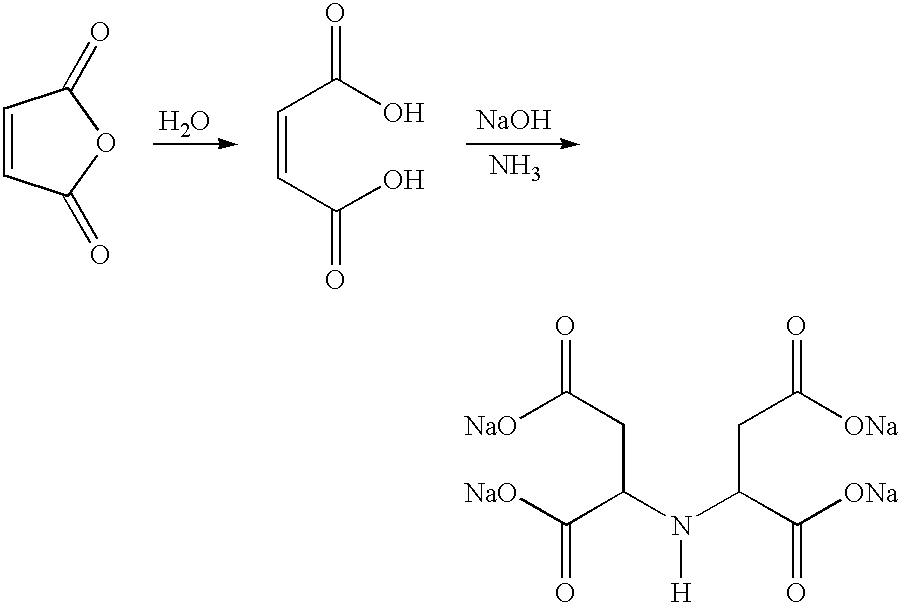Ingestible molluscicide
- Summary
- Abstract
- Description
- Claims
- Application Information
AI Technical Summary
Benefits of technology
Problems solved by technology
Method used
Image
Examples
example 1
Iron IDS was made by complexing the liquid NaIDS (Baypure CX100 / 34) with iron sulfate. The mixture was then dry blended into 96.08% cereal flour (wheat) and sugar, and prepared as described above.
Two test tubs were set up, each containing 10 Arion ater and one young potted lettuce plant. Compost soil was used to cover the tub bottoms. The slugs were collected and added to the tubs the same day. Each tub received 7.5 grams of bait scattered over the soil. The tubs were kept outside in the shade for the experimental period. The data shown in Table 1 illustrates the number of dead slugs in each tub (out of a sample size of 10), and the slug feeding, during the observation period.
TABLE 1TUB 1TUB 2TotalTreatmentDay 4Day 10Day 4Day 10Kill3.92% Iron1 / 104 / 9*1 / 105 / 911 / 20IDSno feedingno feeding(55%)8.0% Iron IDS0 / 104 / 100 / 102 / 106 / 20no feedinglight feeding(30%)12.0% Iron0 / 103 / 100 / 102 / 105 / 20IDSheavylight feeding(25%)feeding0.56% Iron / 3 / 106 / 74 / 106 / 619 / 203.5% NaIDSno feedingno feeding(95%)0.80% Ir...
example 2
Iron IDS was made by complexing the liquid NaIDS (Baypure CX100 / 34) with iron sulfate. The mixture was then dry blended into a cereal flour (wheat), and prepared as described above. The mixture was then dry blended into 96.08% cereal flour (wheat) and sugar, and prepared as described above.
Two test tubs were set up, each tub containing 10 Arion ater and one young potted lettuce plant. Compost soil was used to cover the tub bottoms. The slugs were collected from the Mt. Newton Seed Orchard, and added to the tubs. Each tub received 7.5 grams of bait scattered over the soil. The tubs were kept outside in the shade for the experimental period. The data shown in Table 2 illustrates the number of dead slugs in each tub (out of a sample size of 10), and the slug feeding, during the observation period.
TABLE 2TUB 1TUB 2TotalTreatmentDay 4Day 10Day 4Day 10Kill3.92% Iron0 / 103 / 100 / 101 / 104 / 20IDS15% bait10% plant50% bait100%(20%)eateneateneatenplanteaten8.0% Iron0 / 102 / 100 / 101 / 103 / 20IDS10% bait50%...
PUM
 Login to View More
Login to View More Abstract
Description
Claims
Application Information
 Login to View More
Login to View More - R&D Engineer
- R&D Manager
- IP Professional
- Industry Leading Data Capabilities
- Powerful AI technology
- Patent DNA Extraction
Browse by: Latest US Patents, China's latest patents, Technical Efficacy Thesaurus, Application Domain, Technology Topic, Popular Technical Reports.
© 2024 PatSnap. All rights reserved.Legal|Privacy policy|Modern Slavery Act Transparency Statement|Sitemap|About US| Contact US: help@patsnap.com








